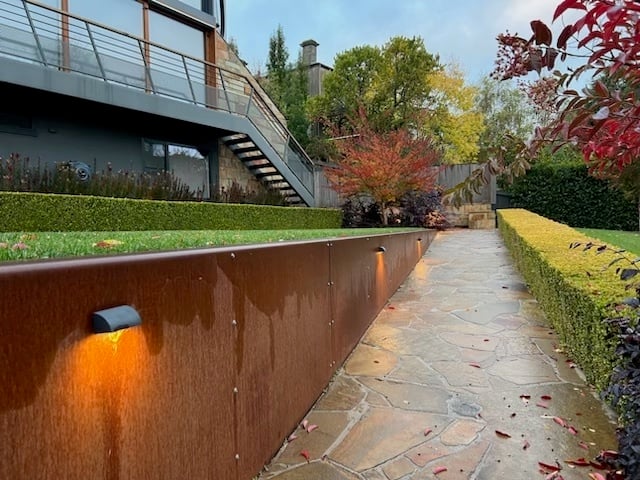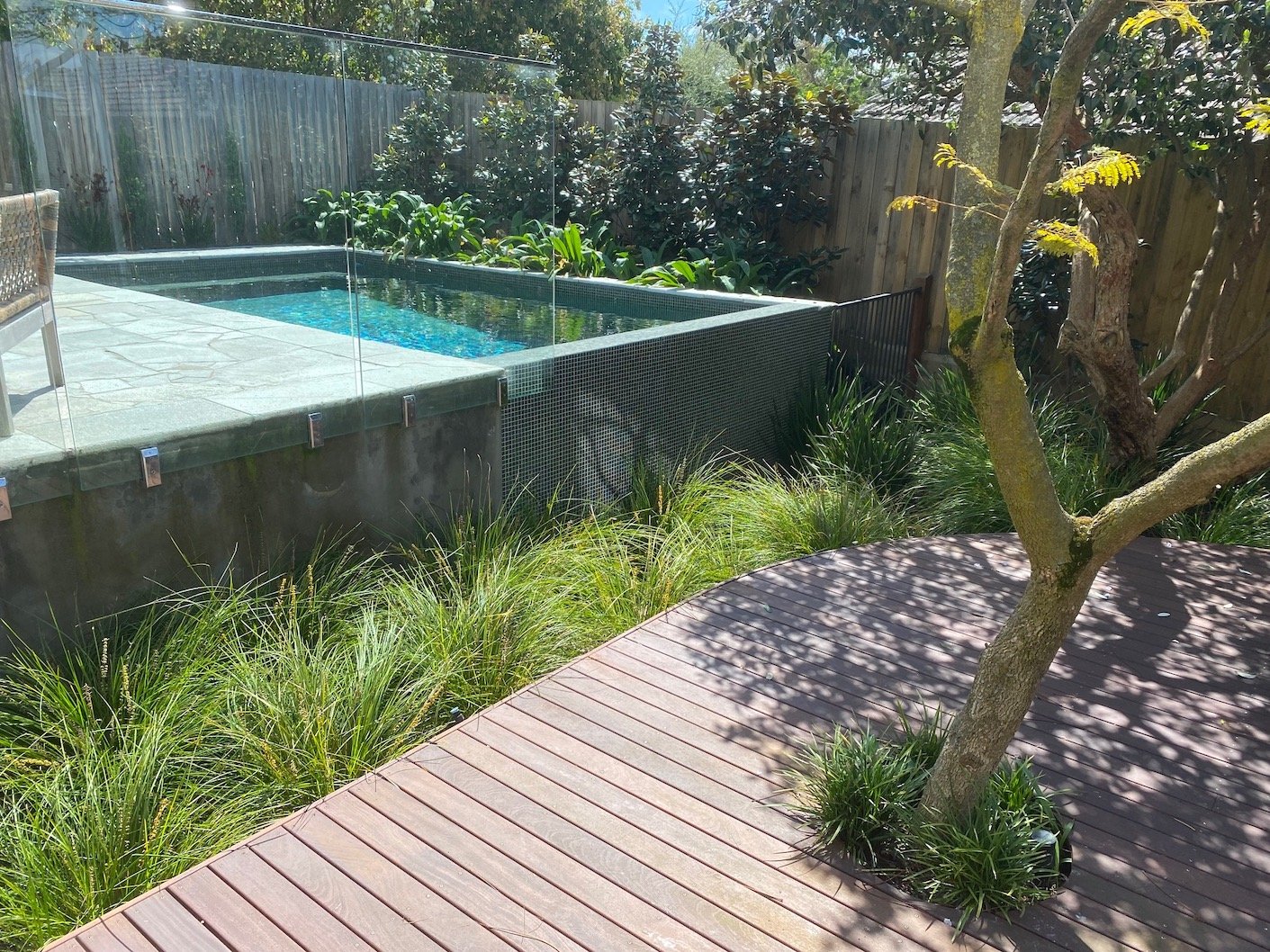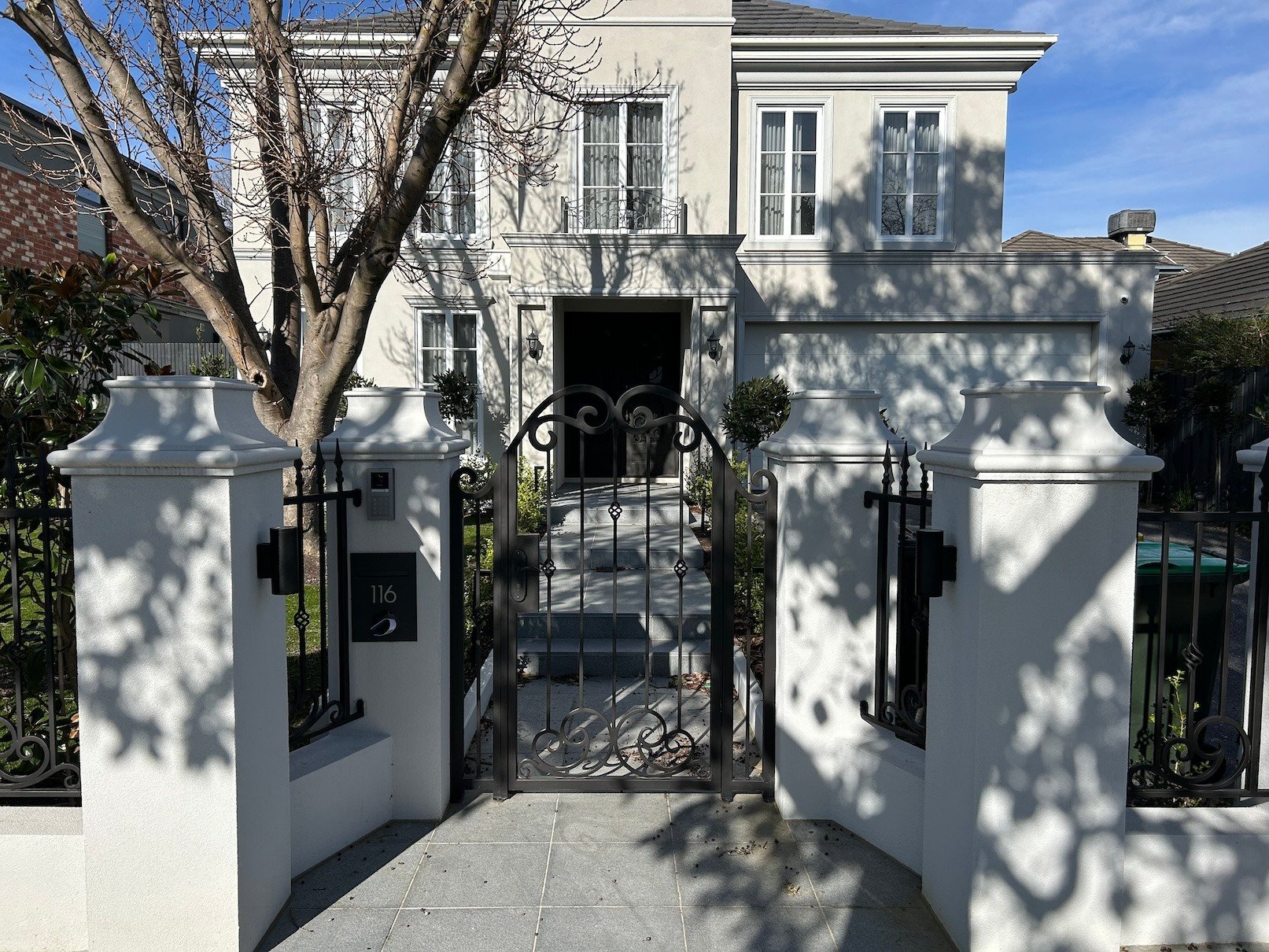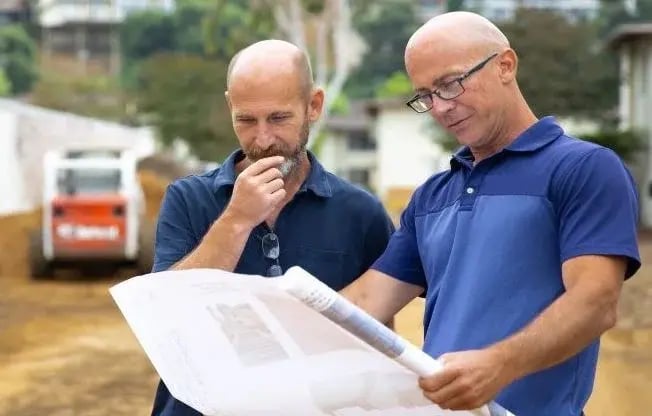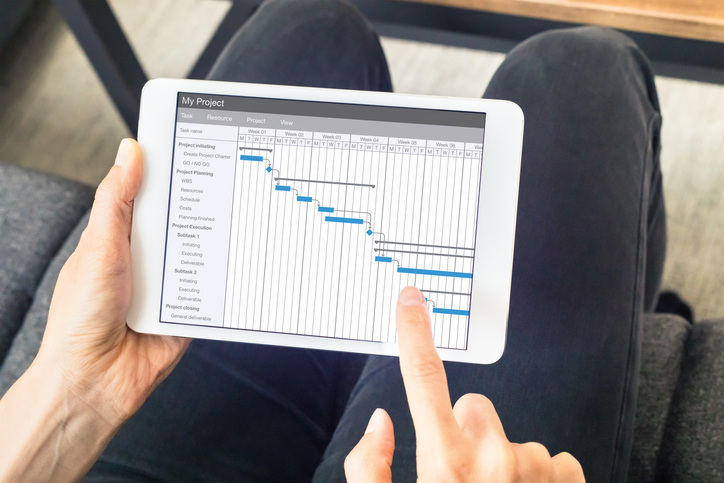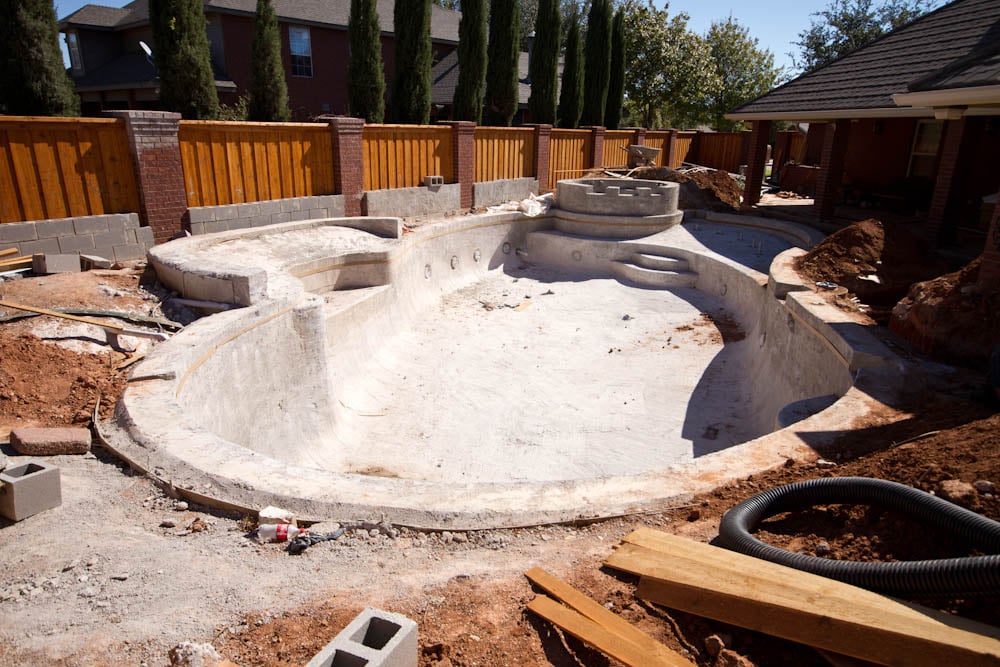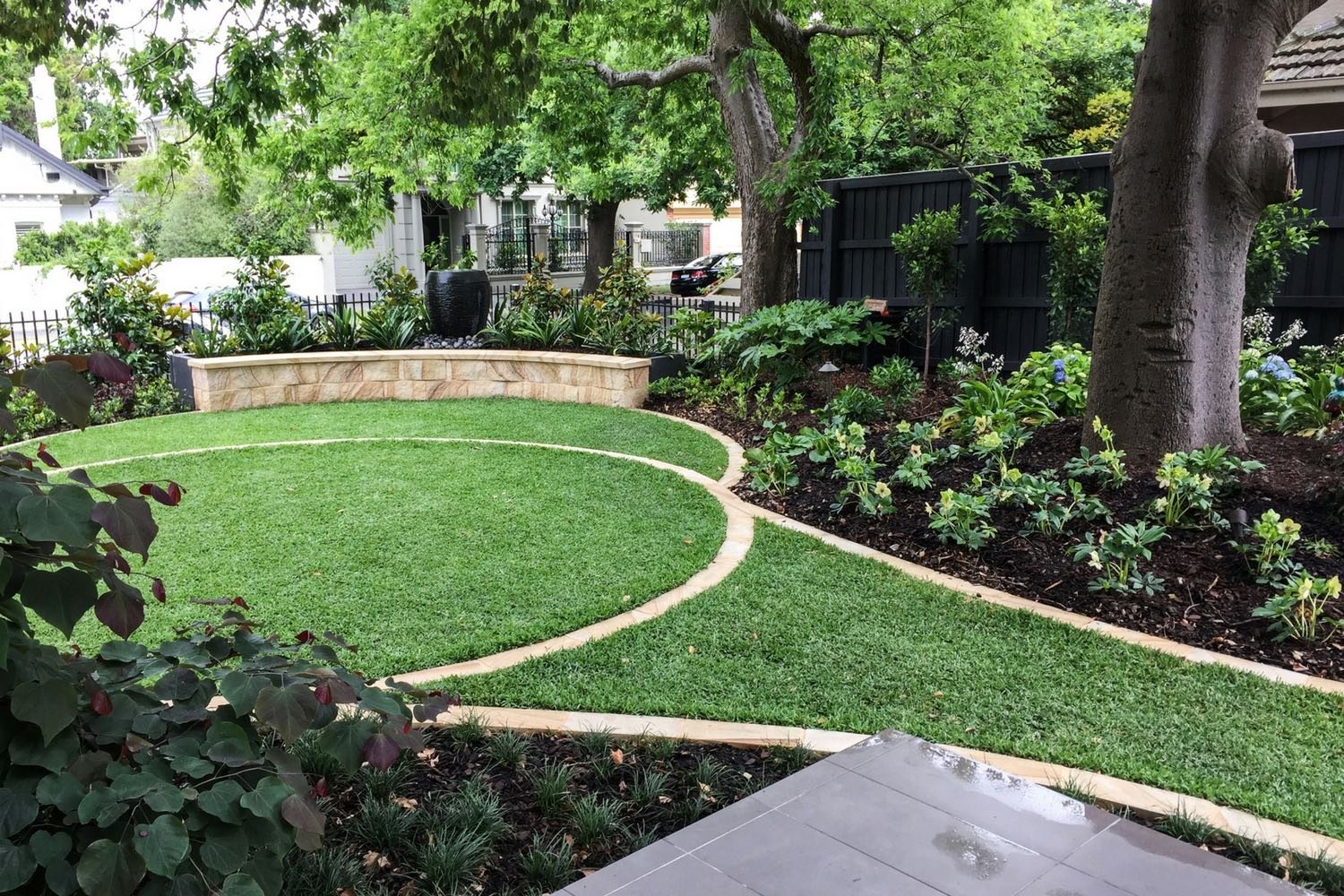How are progress payments handled during a landscaping project?
March 25th, 2024
5 min read
By Andrew Whyte

Have you received a quote for a major landscaping project for your home? Are you now about to commence the landscaping works but you're a bit unsure about starting because you don't understand how all the project finances work? Are you unsure about how much of a deposit is required or any other aspect of the progress payments?
With more than 550 gardens under our belt over the past 30+ years, we know the moment just before the work begins can be both exciting and tinged with a little anxiety.
While you're on the road to making your dream of an ideal garden come true, the reality that you are going to have to start paying for it too can be a little daunting.
We'd like to ease your anxiety a little with this article to explain how all the payments in a landscaping project actually work. (We're assuming for the purpose of this article that you've already paid for your landscape design work, have a quote for the landscaping works and are about to sign the contract.)
The landscaping deposit is governed by the VBA
Just like building a home, before any landscaping works can commence, a deposit will usually need to be paid. The only difference between landscaping companies tends to be the amount required for the deposit.
If you are dealing with a non-registered landscaper (and by that we mean someone who is NOT a Registered Building Practitioner), then in theory they can ask for any amount as a deposit. We have heard of some non-registered landscapers requiring deposits of up to 50% of the total value of the job.
At Whyte Gardens, we are a Registered Building Practitioner so the maximum deposit we can ask for a landscaping job is just 5% of the total quoted price before commencing work.
(For more information on what a Registered Building Practitioner is and why you should insist on using one for your landscaping project please see this article - What type of landscaper will you need for your garden project?)
How is a landscape deposit credited back to the client
Depending on which company you choose for your landscaping, your deposit would normally be taken off the total invoice costs for the whole job. So when your last payment is made the total should be less whatever your deposit was.
At Whyte Gardens, we use a slightly different system. We use a software program called Buildxact which automatically returns to you (as a credit) a part of the deposit each time we invoice a progress payment. So you get charged a little less in each invoice. By the time you receive your last invoice for your project, there is only a small amount to return against the final invoice and it all now balances out.
How are landscaping progress payments managed?
Different landscaping companies may split their progress payments for a job in different ways.
Some landscapers may split the total amount of the job into stages that are invoiced as a percentage when major milestone steps of the project are completed. For example:
- 5% - deposit
- 20% - Stage 1 (site cleared, concrete poured)
- 20% - Stage 2 (paving and deck completed)
- 20% - Stage 3 (front fencing, gate, etc)
- 20% - Stage 4 (softscaping including planting done)
- 15% - Stage 5 (pool fence, job completion)
At Whyte Gardens normally we invoice for the full amount of each completed step, rather than a percentage. So for example we might invoice $12,460 for the completed site preparation and grading works. Next, we might invoice $7890 for the lighting installation, etc
Alternatively, we may invoice larger parts of the project in partial stages. For example, the total quote for the paving is $62,860. We may invoice $15,000 when the pavers are delivered. Then we may invoice another $26,000 when the concrete base is poured. And finally, the balance is due on completion of the paving.
We try to apply the simple rule that we should only ever invoice you for work we have completed or materials we have had delivered to your site.
Again, please note that as Registered Building Practitioners (for structural landscaping) we are bound by regulations on how much we can ask for and when. This is not true however for associated contractors like outdoor kitchens, pool fencers, and louvre pergolas, who can essentially charge whatever they like, whenever they like and under whatever terms and conditions they decide to apply.
How landscaping variations are handled
Although landscaping projects are quoted in great detail and the plan of works is outlined in advance, often things can happen on the site or clients may request additional works to be done. This can bring about what are called 'variations' to the contract which mean a variation in progress payments.
Another type of variation might be if an opportunity to do something different or better arises during construction and the client wishes to seize that chance to change something and gain a benefit.
Whatever the trigger for the variation, basically the same rules apply as detailed above and you will be invoiced as the work is done or the materials are delivered.
If the variation is to cancel something that was originally included in the contract but is now NOT being done, we would simply give you a credit against that element and cancel the amount being invoiced.
What payment terms apply to landscaping contracts?
Different landscapers may demand different payment terms, depending on their business model. Some demand immediate payment on the invoice presented, while others may allow longer times.
We ask for our invoices to be paid within 5 days. This is to facilitate the proper cash flow for your project. With a good cash flow to your project, we can ensure that materials are delivered to your site on time and for works to be completed as scheduled. This keeps the entire project moving along and increases the chance it will be completed on time.
If payments on a project are continually paid late, then material deliveries to your site can be delayed and important milestones on your project missed. This can extend the entire timeframe of your project considerably.
Note that when we are engaging external contractors on your behalf, their payment terms to us may be different to ours so we may have to operate on their payment terms. For example, say we are coordinating a pool fence to be installed on your project, they may ask for a 30% deposit before starting work. A fencing contractor may also require a 30% deposit followed by another 30% once the fence is manufactured, 30% more on installation and 10% on final completion.
We then pass on those costs by invoicing you on their terms.
How do Prime Costs & Provisional Sums work?
As previously mentioned we are Registered Building Practitioners so we are subject to the laws of the Victorian Building Authority. Their contracts have two very specific terms they use.
Prime Cost - ‘an item that has not been selected, or whose value is not known, at the time a domestic building contract is entered into and for the cost of supply and delivery of which the builder must make a reasonable allowance in the contract’.
Provisional Sum -‘an estimate of the cost of carrying out particular work (including the cost of supplying any materials needed for the work) under a domestic building contract for which a builder, after making all reasonable enquiries, cannot give a definite amount at the time the contract is entered into".
Both of these terms are what tend to lead to variations in a contract.
Here is an example of a Prime Cost:
A client states they will want to have a large feature tree planted in the middle of their garden. They state they will not know what type of tree until the project is close to completion. The landscaper makes an allowance for the tree of $2500, plus the labour cost to plant it. When the client finally chooses the tree, it comes in at $3250. The amount for the tree is invoiced as it is now precisely known, as well as the labour cost which has not varied.
Here is an example of a Provisional Sum.
A landscaping project includes a front fence on the footpath which will have an intercom run from it to the house. The installer is still suggesting models for the client so a Provisional Sum of $1500 is included in the contract because a final model has not been chosen. The contract is signed and shortly after the exact model of the intercom is chosen by the client at a cost of $1670. In this case, a variation is raised for the difference of $170. You would be invoiced as per the intercom installers T&C's.
We hope this article has brought some clarity for you about how progress payments for landscaping works are calculated and what the payment terms are.
If you still have any questions, confusions or doubts about the way a landscaping project is charged (or should be charged) please feel free to call us or email us. We are more than happy to answer your questions without any obligation even if you have a project with another landscaper and just need clarification on something.
Articles covering Landscape Design and Construction in Melbourne...
Do I really need working drawings for my landscaping?
What a landscaper might not tell you (but they should)
How to calculate an accurate budget for landscaping
Founder of Whyte Gardens

